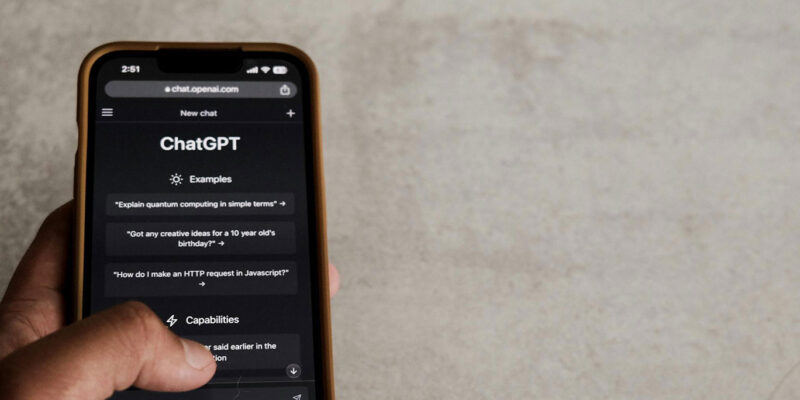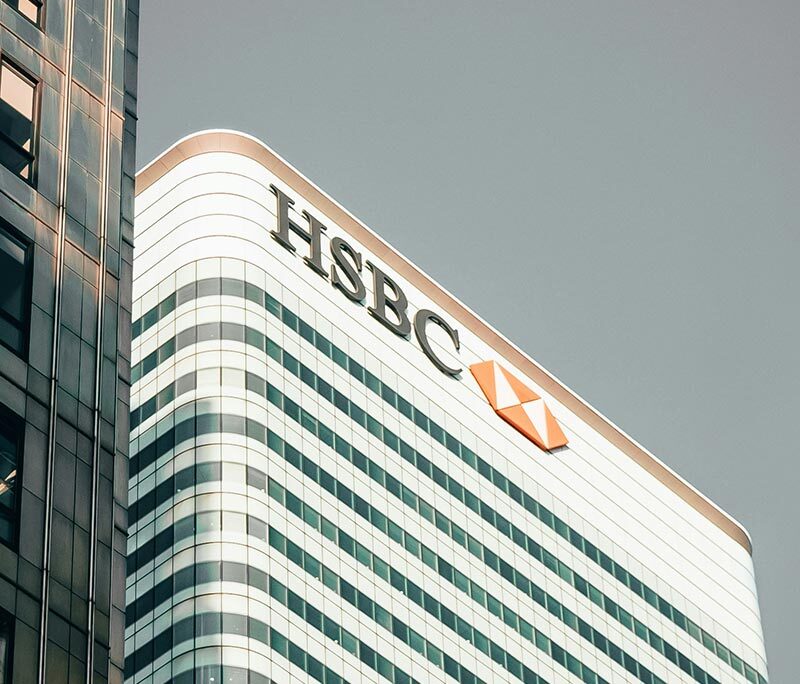Our Intellectual Property disputes team provides both claimant and defendant advice to businesses.
Contact UsManchester 0161 832 2500 | London City 0204 505 8080 | London Finchley 020 8349 0321
Secure PaymentRequest a call back
Legal Services for Intellectual Property Disputes
Our Intellectual Property disputes team provides both claimant and defendant advice to businesses who need to either protect or defend claims involving a broad range of intellectual property matters.
What Is an Intellectual Property Dispute?
An intellectual property dispute is a legal case when someone uses, copies, or claims ownership of a creation or idea that belongs to someone else, without their prior permission.
These disputes can take shape in many different ways which is why it can be hard to understand whether you have a case or not. So whether it’s the unauthorised use of a logo or the passing off of goods under another brand’s name, IP law protects you, the creator and your hard work.
At the heart of any IP dispute is the protection of creative work by a skilled intellectual property dispute lawyer.
Ultimately, defending IP should be at the top of your agenda, as these infringements can have serious impact, whether it be reputational harm or significant financial losses.
For that reason, it’s crucial to understand the legal framework of intellectual property and take early action.
Who We Help with Intellectual Property (IP) Disputes
No matter your size of operation, we can help protect your IP, in fact it isn’t uncommon to see smaller creators being taken advantage of by bigger companies.
So, what can we do about it and more specifically who can we help?
Some of the key clientele we deal with include, but aren’t limited to:
- Individual creators
- Start-ups
- National companies
- International businesses
Whether you’re a tech company feeling the consequences of a shared trade secret or a fashion brand dealing with counterfeits our team has the depth of experience and knowledge to help.
Our clients come from sectors such as retail, technology, food and drink, fashion, creative media, software, manufacturing, and e-commerce. We also support professional services businesses, educational institutions, and investors where intellectual property assets are in play.
Our focus is always on safeguarding the commercial interests of our clients, plus, remember that we always approach the case with your size, sector, and the nature of your dispute from the get go. From legal advice to litigation and legal representation, we are here to support your business every step of the way.
What Our IP Solicitors Do in a Dispute
We regularly act for or against household names to protect businesses or individuals involved in intellectual property disputes. If you think your IP is being infringed or you need to defend yourself against a claim, we can help.
We regularly act for clients in the Intellectual Property Enterprise Court (IPEC) and other Court jurisdictions, with our IP litigation team advising clients involved in disputes which cover the following areas:
- Trademark infringement
- Passing off
- Copyright
- Design Rights
- Breach of confidence
- I.T disputes
- Trade secrets
Clients seek our advice on a broad range of IP matters that affect their businesses. In addition to the above, clients instruct us to advise on cost-effective enforcement, recovery of domain names / domain name disputes, breach of confidence and misuse of confidential information claims, contract disputes surrounding licensing and data disputes.
To find out more about each one of these common IP case topics, see our most common IP disputes section below.
The Most Common IP Legal Disputes
Common IP disputes include trademarks disputes, copyright and design right disputes. Most cases which we deal with actually involve a combination of various breaches as well as what could be deemed as ‘sub areas’ such as a breach of a trade secret or an I.T. dispute.
Among the most common areas of IP claims are the following…
#1 Anti – counterfeiting
Counterfeit goods can lead to significant financial and reputational harm for brand owners, and they can even pose health and safety risks to consumers.
Once in the supply chain, counterfeits are challenging to eliminate, which can impact sales and revenue. Businesses of all sizes should establish anti-counterfeiting policies to respond effectively to infringements.
Our team advises on proactive anti-counterfeiting measures and best practices to safeguard your goods. In case of a dispute, we work quickly to resolve issues, whether dealing with counterfeit items, grey goods, or parallel imports.
Grey goods, while not counterfeit, involve the unauthorised distribution of products, potentially harming your brand.
An intellectual property dispute lawyer at BBS Law handles all aspects of anti-counterfeiting cases, coordinating with authorities like Trading Standards and Customs to secure the best possible outcome.
#2 Confidentiality and Trade Secrets
Trade secrets are vital to the financial and reputational success of a business, and can give your business an edge over competitors. Famous examples of trade secrets include, the recipes of Coca Cola, IRN-BRU or the famous 13 herbs and spices used in KFC’s chicken.
We understand that there are circumstances when confidential knowhow, trade secrets and commercially sensitive information must be shared with employees, stakeholders or partners. We also understand the feeling of betrayal and damage to your business that disclosure of confidential information can cause.
However, there is no distinct IP right which governs and protects trade secrets, and companies need to make sure they have adequate contractual protection in place in order to preserve confidentiality which is precisely what we can help with.
#3 Copyright
Copyright is the legal right that protects original ideas that have been physically expressed.
It governs the rights of the owner, as well as the responsibilities of other people who want to use copyrighted work.
Owners of a copyrighted work have the right to copy, change, sell, share or rent their work. There is also a right to prevent people from imitating work, restrict its distribution and stop others from using copyrighted work.
#4 Design rights
In the same realm of IP, our team often see IP disputes surrounding design rights afford protection to the visual appearance of a product or item, or parts of an item such as its shape and contour.
The owner of the design has the exclusive right to prevent unauthorised parties from using or producing that design, it is important to note that design rights protect 3D products, whilst 2D, such as design sheets, are usually protected by copyright.
Design rights can be registered in the UK, or there is the option of registering them across the EU. Design rights can also be unregistered whilst still giving the owner of the design certain protections. Of course, which option you decide will depend on your business and where you plan to market and sell your works.
We can help whether it be claims against or for your products, ensuring you’re in the right legal position.
#5 Patent disputes
Patents protect your inventions and can be one of the most valuable assets of your business. Patents give the exclusive rights for the patent holder, for a limited time, to prevent others from making, using or selling their invention without permission.
In contrast to copyright, which protects tangible formats of artistic works or designs, patentable rights include industrial processes or methods, machines and manufactured goods.
It is vital that your patentable invention is not shared in the public domain and is registered as soon as possible, or you may lose your right of protection in the law.
The benefits of protection can be well worth the expense and time. Like any other intellectual property right, if not protected adequately, you may lose the financial benefits and suffer reputational loss if someone else copies your invention.
From the date of the patent application in the UK, protection lasts for 20 years. During this period, you have the right to bring proceedings against an infringing party.
It is vital that early advice is sought in order to understand the process of registration, including the timing and cost of protecting and utilising your patent. This advice is imperative to ensure that a patent is the right protection for your business.
#6 Software disputes
We can help you in relation to contractual disputes that arise due to a dispute over the terms of a software agreement or maintenance agreement.
We understand that IT and software applications are essential for the growth and profitability of modern businesses, thus, it is therefore vital that you are fully protected.
It may be that your IT or software dispute relates to an infringement of an intellectual property right, such as copyright, trade mark, patent or trade secret. Alternatively, it may be a contractual dispute. Both situations can quickly turn into protracted and expensive disputes and It is imperative that advice is sought at an early stage.
In order to avoid disputes in the first place, it is sensible to have properly drafted licences and contractual agreements. As well as advising and assisting in contentious matters, we are also a first port of call to advise you on well drafted and secured contractual agreements.
We will explore sensible avenues to resolve any dispute, involving alternative dispute resolution such as mediation, negotiation and settlement.
#7 Trademark Disputes & Passing Off
Trade marks are essentially the badge of your business, they are how we distinguish one person’s brand, goods and services from another. Most businesses will have a trademark – a logo, brand, or trading name, and it is vital to your business that they are distinct and protected.
Trade marks should not be generic, as this may result in loss of registration. It is also important that trade marks are distinctive to help customers recognise the goods or services that you provide and to keep you ahead of your competition.
Equally, you may suffer financial or reputational loss if a business uses a trade mark identical or similar to your own mark.
Trade marks are registered through the UK intellectual Property Office and if accepted, you will benefit from exclusive rights. This includes the right to prevent unauthorised use of the mark on products that are similar or identical to yours.
We can help you with the registration of your trade mark, ensuring that you achieve the maximum protection afforded by the law, leaving you to run your business safe in the knowledge that your brand is safe.
Passing off protection relates to the “goodwill” of a brand, or its reputation that it has built up in relation to goods or services which it uses to attract customers.
Essentially, passing off protects an owner from another trader from representing that his goods or services have an association or connection with the owner’s goods.
Passing off can be difficult to prove, meaning disputes can often be complex and expensive. Market research may have to be commissioned to prove the existence of reputation and goodwill in relation to specific products.
If you feel you have a trademark issue, or want advice on any aspect of trade mark law, please contact our litigation department who have extensive experience advising on trademark claims.
Why Choose Us for Your Intellectual Property Case
We understand that seeking the right intellectual property dispute lawyer that you trust with fighting your corner is important. Whether you’re at the beginning of your project and want to protect your new inventions or trademarks. Or, you want to fight a case that sees you as the victim, we are here.
Our team works across numerous industries, ensuring that no matter what it is those that have created, keep their creations without somebody else reaping the benefits. Rest assured that our team is here to protect you within cases regarding breach of confidence, registered trademarks, trade mark infringement, artistic work, patent infringements and more.
Our knowledge spans wide, we have experience, expertise and the relationships that ensure our teams have your case under control, with all the right hands onboard.
So, if this is something that you’re finding yourself in the midst of, get the help you deserve from us at BBS Law.
Frequently Asked Questions
What is Confidential Information?
Confidential information includes any proprietary knowledge not publicly accessible or information shared with an expectation of privacy. While trade secrets and confidential data lack standalone IP protection, various legal tools help safeguard them like Non-Disclosure Agreements (NDAs) or DAs require precise drafting as they don’t always guarantee complete protection.
What does copyright protect?
It is important to recognise that copyright protection only covers original and tangible work. This means the work must be of the copywriter’s skill and should not just replicate the work of someone else. It also means that work cannot merely be an idea someone has had. Examples of work protected by copyright include: music, films, computer software and databases, technical reports, books advertising and manuals.
What is Fair Use?
In the UK, there are limited exceptions that permit the lawful use of copyrighted material without the owner’s permission. These generally apply in three cases:
- Research or Private Study
- Criticism, Review, or Quotation
- Current Event Reporting (excluding photographs)
Determining if fair use applies can be challenging, as it depends on specific circumstances rather than a clear-cut definition.
What is an unregistered design right?
In the UK, unregistered design rights protect the shape and contours of the product. You will be given automatic unregistered design rights if:
- It’s an original design
- It’s a design not widely acknowledged within groups of comparable products
Unregistered design rights give protection for 15 years in the UK and three years in the EU. In the last five years of the unregistered design right, you must give a licence of right to anyone that asks.
How to register a patent?
Like any other intellectual property right, patents must be registered at the Intellectual Property Office. Compared to other intellectual property rights however, the process of obtaining patents is expensive and can typically take a long time to register. In some circumstances, patents can take years to register and your application may require significant amendments before it is accepted and processed.
Our Litigation Partners
We take the time to get to know our clients and their businesses, and we work collaboratively with them to achieve their goals.
Meet Our TeamsFor proactive, bespoke, commercial solutions, contact us to discuss your needs.
Contact UsRequest a call back

I had the pleasure of working with David on some issues we had; from start to finish the experience was very good, and we got the outcome we needed as a company plus very good advice for the future. Overall a 5-star experience.
Effy


Having recently worked with BBS Law to successfully conclude an Intellectual Property infringement case we were extremely happy with the services they provided.
David Bondt expertly guided us through the process and mediation, providing knowledgeable, professional and commercial support at all stages – thanks again David!
Baum Trading Limited


During a very difficult period in our business, we had to seek the help of a professional Law firm. We selected BBS Law Ltd following initial calls with Andrew Haffner and the Litigation Team. The support and unbiased guidance given by Andrew and the team guided us through many nightmare events. The extensive knowledge and professional support given to the complexities of the problem were well understood by BBS Law Ltd.
Hazel James, Managing Director at Brendon International Limited


I instructed David Bondt of BBS Law to deal with a complex intellectual property dispute. The other side were trying to be overly aggressive, but David and his team were able to deal with the situation professionally and robustly on my behalf. Needless to say, BBS Law obtained a very favourable outcome for us and gave very clear and concise advice to me throughout the case. I wouldn’t hesitate to recommend the litigation team at BBS Law.
SR, Client

Litigation News
Litigation Case Studies
High Court Allows BBS Client’s Claim Against HSBC to Proceed
High Court rules BBS’s client’s claim against HSBC should continue as an application for Summary Judgment and Strike Out by HSBC fails. David Bondt led the litigation team at BBS Law, who acted for the successful claimant in the recent…









